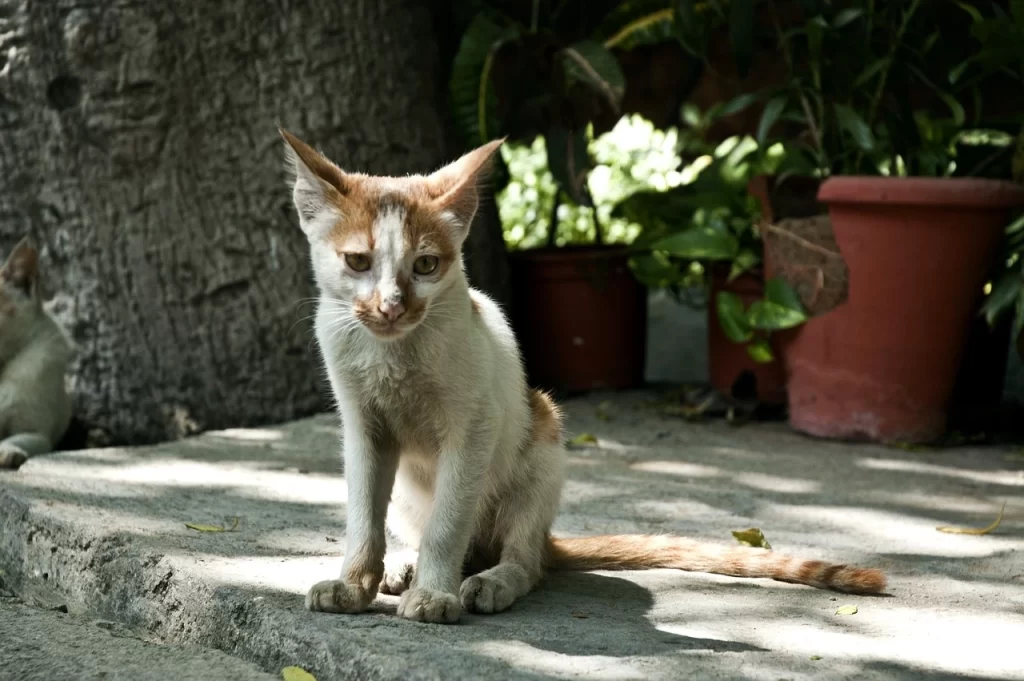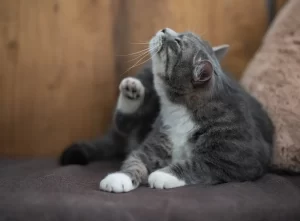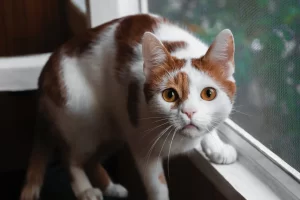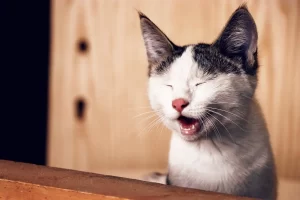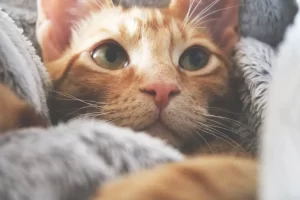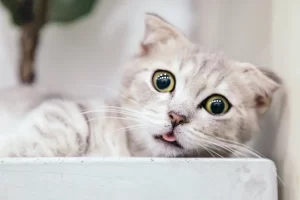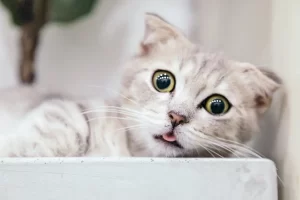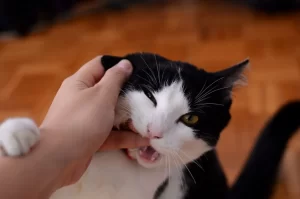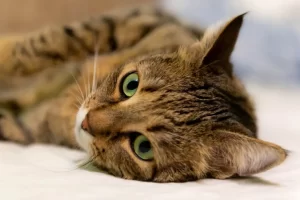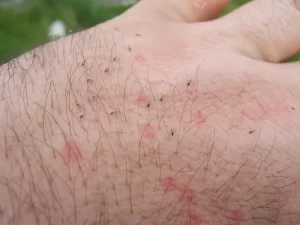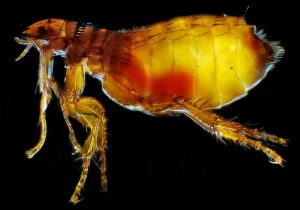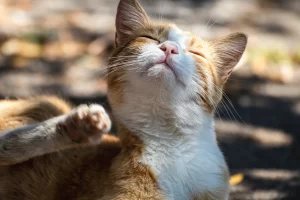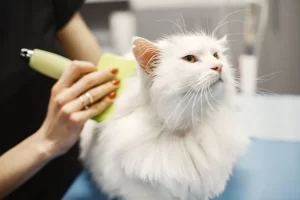Pancreatitis is a painful and potentially life-threatening condition that affects the pancreas of cats. While prompt veterinary care is essential for managing pancreatitis, there are also a number of home treatment options that can help to alleviate symptoms and improve a cat’s quality of life. In this article, we’ll explore the key aspects of home treatment for cat pancreatitis, including dietary changes, fluid therapy, pain management, and supplements. By understanding the options available and working closely with a veterinarian, owners can play a proactive role in managing their cat’s pancreatitis and helping to improve their overall health and well-being.
Table of Contents
ToggleDefinition of pancreatitis in cats
Pancreatitis is a condition in which the pancreas, an organ located in the abdomen, becomes inflamed. This can lead to a range of symptoms and complications, including abdominal pain, digestive issues, and insulin imbalances. Pancreatitis can be acute (short-term and severe) or chronic (long-term and recurring). In cats, pancreatitis is often associated with dietary factors and other underlying health conditions.
Causes of pancreatitis in cats
There are several potential causes of pancreatitis in cats, including:
- Diet: Cats that eat high-fat diets or have rapid changes in their diet may be at risk for developing pancreatitis.
- Obesity: Overweight or obese cats are more likely to develop pancreatitis.
- High-carbohydrate diets: Feeding cats diets high in carbohydrates may also increase their risk of pancreatitis.
- Hyperlipidemia: High levels of fats in the blood, also known as hyperlipidemia, can lead to pancreatitis in cats.
- Certain medications: Some medications, such as corticosteroids and certain antibiotics, may increase the risk of developing pancreatitis in cats.
- Chronic diseases: Chronic diseases, such as diabetes and liver disease, can also increase the risk of pancreatitis in cats. To improve the liver health of your cat, take a look at these home treatments and remedies.
- Trauma: Physical trauma, such as a car accident, can cause pancreatitis in cats.
- Infections: Infections, such as feline coronavirus or feline immunodeficiency virus (FIV), can also cause pancreatitis in cats.
- Idiopathic: In some cases, the cause of pancreatitis in cats is unknown, and is referred to as idiopathic pancreatitis.
Symptoms of pancreatitis in cats
The symptoms of pancreatitis in cats can vary, but may include:
- Abdominal pain: Cats with pancreatitis may display signs of abdominal discomforts, such as crying out when touched or avoiding being picked up.
- Loss of appetite: Cats with pancreatitis may refuse to eat or may only eat small amounts.
- Vomiting: Nausea and vomiting are common symptoms of pancreatitis in cats.
- Diarrhea: Cats with pancreatitis may experience diarrhea, which can be severe or mild.
- Dehydration: Cats with pancreatitis may become dehydrated due to vomiting and diarrhea.
- Lethargy: Cats with pancreatitis may become lethargic and may have reduced energy levels. Use these home treatments to improve their overall well-being.
- Weight loss: Cats with pancreatitis may lose weight due to their reduced appetite and increased metabolism.
- Jaundice: In severe cases of pancreatitis, cats may develop jaundice, which is indicated by yellowing of the eyes and gums. Fortunately, there are home treatments that can help your cat with Jaundice.
- Abdominal swelling: Cats with pancreatitis may have a swollen or bloated abdomen.
- Changes in behavior: Cats with pancreatitis may display changes in behavior, such as hiding, becoming aggressive, or withdrawing from social interactions.
Diagnosis and medical treatments
Diagnosis of pancreatitis in cats typically involves a combination of physical examination, blood tests, and imaging studies. The following are common methods used to diagnose pancreatitis in cats:
- Physical examination: During a physical examination, a veterinarian may feel the abdomen for signs of pain or swelling, and may look for other signs of illness, such as changes in skin color or changes in the eyes.
- Blood tests: Blood tests can be used to look for elevated levels of pancreatic enzymes and other markers of inflammation, as well as to assess overall health and identify any underlying conditions that may be contributing to pancreatitis.
- Imaging studies: Imaging studies, such as ultrasound or X-rays, can be used to visualize the pancreas and surrounding organs and may be helpful in identifying any abnormalities or blockages.
Medical treatments for pancreatitis in cats may include the following:
- Hospitalization: Cats with severe pancreatitis may need to be hospitalized for intensive treatment and monitoring.
- Fluid therapy: Dehydration is common in cats with pancreatitis, and fluid therapy may be needed to help replenish fluids and electrolytes.
- Pain management: Cats with pancreatitis may experience significant abdominal pain, and pain management may be needed to keep them comfortable.
- Diet management: Cats with pancreatitis may need to be fed a special diet, and may need to be fed small, frequent meals to help manage their symptoms.
- Medications: Medications, such as antibiotics, anti-inflammatory drugs, and antacids, may be prescribed to help manage the symptoms of pancreatitis and prevent complications.
- Monitoring: Cats with pancreatitis will need to be closely monitored for signs of improvement or worsening, and for any potential complications.
Remember that the specific treatment plan for a cat with pancreatitis will depend on the individual case and the severity of the condition and that not all treatments listed here may be necessary in every case.
Potential complications of pancreatitis if left untreated
If left untreated, pancreatitis in cats can lead to a number of serious health risks and complications, including:
- Dehydration: Pancreatitis can cause significant vomiting and diarrhea, leading to dehydration and electrolyte imbalances.
- Malnutrition: Cats with pancreatitis may refuse to eat or may only eat small amounts, which can lead to malnutrition and weight loss.
- Sepsis: Pancreatitis can cause the pancreas to become infected, which can lead to sepsis, a potentially life-threatening condition.
- Multi-organ failure: Pancreatitis can cause inflammation and damage to multiple organs, including the liver, kidneys, and heart, leading to multi-organ failure.
- Abscess formation: In severe cases of pancreatitis, abscesses can form in the pancreas, which can cause pain and complications.
- Chronic pancreatitis: Pancreatitis can become a chronic condition if left untreated, leading to ongoing health problems and a decreased quality of life for the cat.
- Relapse: Cats with pancreatitis can experience relapses, even after initial treatment, and may require repeated hospitalization and treatment.
Note that the specific risks and complications of pancreatitis in cats will depend on the individual case and the severity of the condition and that not all risks and complications listed here may occur in every case.
Home treatment for cat pancreatitis
Here are the main home remedies and treatments for pancreatitis in cats:
- Low-fat diet: Feeding your cat a low-fat diet can help reduce the strain on the pancreas and reduce inflammation. It’s important to consult with a veterinarian before making any changes to your cat’s diet.
- Small, frequent meals: Instead of feeding your cat one or two large meals, consider feeding them several smaller meals throughout the day to help reduce the strain on the pancreas.
- Probiotics: Probiotics can help restore the balance of good bacteria in the gut, which can help improve digestion and reduce inflammation. Probiotics can be found in supplements or in certain foods, such as yogurt.
- Digestive enzymes: Digestive enzymes can help break down food in the gut, reducing the strain on the pancreas. Digestive enzymes can be found in supplements or can be added to food.
- Ginger: Ginger has anti-inflammatory properties and can help reduce inflammation and pain in the abdomen. Ginger can be added to food or given as a supplement.
- Turmeric: Turmeric has anti-inflammatory properties and can help reduce inflammation and pain in the abdomen. Turmeric can be added to food or given as a supplement.
- Omega-3 fatty acids: Omega-3 fatty acids have anti-inflammatory properties and can help reduce inflammation and improve overall health. Omega-3 fatty acids can be found in supplements or in certain foods, such as fatty fish.
- Slippery elm: Slippery elm can help soothe the digestive tract and reduce inflammation. Slippery elm can be found in supplements or added to food.
- Vitamin E: Vitamin E has anti-inflammatory properties and can help reduce inflammation and improve overall health. Vitamin E can be found in supplements or in certain foods, such as nuts and seeds.
- Licorice root: Licorice root can help soothe the digestive tract and reduce inflammation. Licorice root can be found in supplements or added to food.
- Aloe vera: Aloe vera can help soothe the digestive tract and reduce inflammation. Aloe vera can be found in supplements or added to food.
- Milk thistle: Milk thistle can help support liver health and reduce inflammation. Milk thistle can be found in supplements or added to food.
- Marshmallow root: Marshmallow root can help soothe the digestive tract and reduce inflammation. Marshmallow root can be found in supplements or added to food.
- Dandelion root: Dandelion root can help support liver health and reduce inflammation. Dandelion root can be found in supplements or added to food.
- Fennel: Fennel can help soothe the digestive tract and reduce inflammation. Fennel can be found in supplements or added to food.
Role of diet in managing pancreatitis
Diet plays a crucial role in managing pancreatitis in cats. A proper diet can help reduce the strain on the pancreas, reduce inflammation, and promote healing. Here are some ways that diet can help manage pancreatitis in cats:
- Low-fat diet: Feeding your cat a low-fat diet can help reduce the strain on the pancreas and reduce inflammation. Fatty foods can be difficult for the pancreas to digest and can cause the organ to produce more digestive enzymes, leading to further inflammation. It may also result in fatty liver disease in your cat.
- Small, frequent meals: Instead of feeding your cat one or two large meals, consider feeding them several smaller meals throughout the day to help reduce the strain on the pancreas.
- High-quality protein: Feeding your cat high-quality protein can help support muscle mass and overall health. Choose lean proteins, such as chicken, fish, or turkey, rather than fatty proteins, such as beef or pork.
- Avoiding processed foods: Processed foods can contain additives, preservatives, and other ingredients that can be difficult for the cat to digest and that can exacerbate inflammation. Choose whole, natural foods whenever possible.
- Hydration: Pancreatitis can cause significant vomiting and diarrhea, leading to dehydration. It’s important to encourage your cat to drink plenty of water and to provide them with an adequate supply of fresh water at all times.
Foods to avoid for cats with pancreatitis
It’s important to be mindful of what you feed your cat if they have been diagnosed with pancreatitis. Here are some foods that you should avoid giving to your cat if they have pancreatitis:
- Fatty foods: Fatty foods, such as bacon, sausage, or fatty cuts of meat, can be difficult for the pancreas to digest and can exacerbate inflammation.
- Processed foods: Processed foods, such as canned foods, can contain additives, preservatives, and other ingredients that can be difficult for the cat to digest and that can exacerbate inflammation.
- Dairy products: Dairy products, such as milk or cheese, can be difficult for some cats to digest, especially if they are lactose intolerant.
- Table scraps: Table scraps, such as leftovers or human food, can contain ingredients that are not suitable for cats, such as onions or garlic, which can be toxic to cats.
- High-carbohydrate foods: High-carbohydrate foods, such as dry cat food or treats, can cause a rapid release of insulin, which can exacerbate inflammation in the pancreas.
Supplements and vitamins for cats with pancreatitis
Here are some supplements and vitamins that may be beneficial for cats with pancreatitis:
- Probiotics: Probiotics can help support healthy gut flora and reduce inflammation in the pancreas. Give your cat probiotics as directed by your veterinarian.
- Omega-3 fatty acids: Omega-3 fatty acids, such as those found in fish oil, can help reduce inflammation in the body.
- Vitamin E: Vitamin E is a powerful antioxidant that can help reduce inflammation and promote healing.
- Vitamin B12: Vitamin B12 can help support the nervous system and improve overall health.
- Pancreatic enzymes: Pancreatic enzyme supplements can help support the pancreas and improve digestion.
Hydration and fluid therapy for cats with pancreatitis
Hydration and fluid therapy is important for cats with pancreatitis as they can help support the pancreas and prevent dehydration. Here are some methods and recommendations for hydration and fluid therapy in cats with pancreatitis:
- Subcutaneous fluid therapy: Subcutaneous fluid therapy involves administering fluids under the skin, which can help maintain hydration levels and support the pancreas. This should be done as directed by your veterinarian.
- Oral fluid therapy: Oral fluid therapy involves offering your cat water or an electrolyte solution to drink. Encourage your cat to drink as much as possible, and offer frequent water breaks throughout the day.
- IV fluid therapy: IV fluid therapy involves administering fluids directly into the bloodstream through an IV. This is typically done in a veterinary hospital setting and should be done as directed by your veterinarian.
Pain management for cats with pancreatitis
Pain management is an important aspect of treating cats with pancreatitis, as the condition can cause significant discomfort and pain. Here are some methods and recommendations for managing pain in cats with pancreatitis:
- Prescription pain medications: Your veterinarian may prescribe pain medications, such as opioids or non-steroidal anti-inflammatory drugs (NSAIDs), to manage pain in your cat. These medications should be given as directed by your veterinarian.
- Heat therapy: Applying a warm compress to your cat’s belly can help relieve pain and promote relaxation.
- Massage: Gentle massage can help relieve pain and promote relaxation in cats with pancreatitis.
- Acupuncture: Acupuncture may help relieve pain and promote healing in cats with pancreatitis.
- Supplements: Some supplements, such as glucosamine and chondroitin, may help reduce pain and improve joint health in cats.
Prevention of pancreatitis in cats
Here are some steps you can take to help prevent pancreatitis in cats:
- Feed a balanced and nutritious diet: Feeding a balanced and nutritious diet that meets your cat’s nutritional needs can help reduce the risk of developing pancreatitis. Avoid feeding your cat table scraps or high-fat foods.
- Maintain a healthy weight: Keeping your cat at a healthy weight can help reduce the risk of developing pancreatitis. If your cat is overweight, work with your veterinarian to develop a weight loss plan.
- Avoid fasting or skipping meals: Fasting or skipping meals can increase the risk of developing pancreatitis in cats. Offer your cat food and water at regular intervals throughout the day.
- Avoid giving your cat high-fat treats: High-fat treats, such as bacon or cheese, can increase the risk of developing pancreatitis. Offer your cat low-fat treats instead.
- Monitor for symptoms: Be aware of the symptoms of pancreatitis in cats and seek veterinary care if you notice any signs of illness in your cat.
- Keep your cat’s stress levels low: Chronic stress can increase the risk of developing pancreatitis in cats. Ensure your cat has a calm and peaceful environment and provide plenty of opportunities for play and socialization.
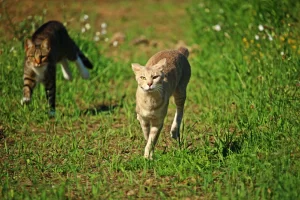
Role of weight and stress management in preventing pancreatitis
Here are some additional steps you can take to help manage weight and stress in cats and prevent pancreatitis:
- Maintain a healthy weight: Feeding a balanced and nutritious diet that meets your cat’s nutritional needs can help maintain a healthy weight and reduce the risk of developing pancreatitis. Control portion sizes and offer smaller, more frequent meals throughout the day instead of large meals.
- Encourage physical activity: Regular physical activity can help maintain a healthy weight and reduce stress in cats. Provide plenty of opportunities for play and exercise, such as interactive toys, climbing trees, and running and hiding games.
- Provide a calm environment: Chronic stress can increase the risk of developing pancreatitis. Create a calm and peaceful environment for your cat and provide plenty of opportunities for play and socialization.
- Gradually introduce changes: Sudden changes in the environment, such as moving to a new home or introducing new pets, can cause stress in cats and increase the risk of developing pancreatitis. Gradually introduce changes and provide plenty of opportunities for your cat to adjust.
- Offer affection: Providing plenty of affection and attention can help reduce stress and promote well-being in cats. Offer regular grooming sessions, cuddles, and playtime.
- Manage chronic medical conditions: Chronic medical conditions, such as diabetes or hyperthyroidism (read more about it and its treatment at home here), can increase the risk of developing pancreatitis. Work with your veterinarian to manage any chronic medical conditions your cat may have.
- Regular check-ups: Regular check-ups with your veterinarian can help monitor your cat’s overall health and detect any early signs of illness, including pancreatitis.
Role of genetics, age, breed, and gender in pancreatitis in cats
The role of genetics, age, breed, and sex in the development of pancreatitis in cats is still being researched, but here’s what is currently known:
- Genetics: While the specific genetic predisposition for pancreatitis in cats is still unknown, a family history of the condition may increase a cat’s risk.
- Age: Middle-aged and older cats are more likely to develop pancreatitis than younger cats, but the condition can occur at any age.
- Breed: Some breeds of cats, including Siamese, Persian, and Maine Coon cats, may have a higher risk of developing pancreatitis.
- Sex: Female cats are more likely to develop pancreatitis than male cats, although the reason for this is not fully understood.
Which vet to visit with what expertise?
When a cat is suspected of having pancreatitis, it’s important to seek veterinary care as soon as possible. Here are some types of veterinarians who may be involved in the care of a cat with pancreatitis:
- General practitioner: A general practitioner (GP) veterinarian is typically the first point of contact for cat owners. They can perform initial diagnostic tests and provide basic treatments for pancreatitis.
- Internal medicine specialist: If the condition is severe or complex, a referral to an internal medicine specialist may be necessary. These veterinarians have advanced training in diagnosing and treating internal organ disorders, including pancreatitis.
- Critical care specialist: In severe cases of pancreatitis, a critical care specialist may be necessary to provide intensive treatment and support. These veterinarians have advanced training in managing critically ill patients, including those with pancreatitis.
- Nutritionist: In cases where dietary management is important for managing pancreatitis, a referral to a veterinary nutritionist may be necessary. These veterinarians have specialized training in nutrition and can provide personalized dietary recommendations for cats with pancreatitis.
Read more on How often should I take my cat to the vet?

